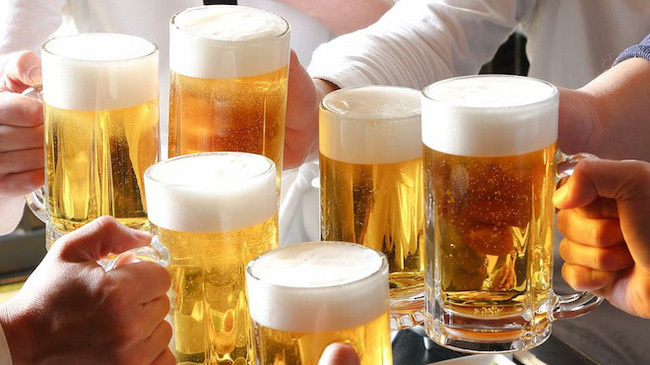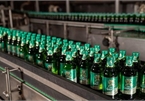Nguyen Van Viet, chair of the Vietnam Beer Alcohol Beverage Association, said it is difficult to do business in the Vietnamese beer market and only the strongest competitors will survive. Though the market is very promising with great opportunities, not all investors can reap fruit.

The marketing director of a HCM City-based brewer agreed that the competition in the market is fierce.
“Enterprises have to scramble for customers in every area, every quarter or month. Whether you win or lose will depend on your marketing strategies,” he said, adding that all brewers are fighting for market share in the mass media and at restaurants.
A marketing officer told reporters he tries to know in advance which restaurants or eatery houses are about to open.
“You need to find out which restaurants are going to open, and see the owners and persuade them to sell your products,” he explained. “If you just sit at home and look for advertisements for people who need beer suppliers, you will have nothing, including porridge, to eat."
This means that it will be too late if marketing officers see restaurant owners after the opening day, because the owners have decided which products to use.
“So, you need to understand the area you are in charge of. You need to regularly go to every corner in the area, visit every construction work, to find out if the owners intend to open restaurants. You need to predict the time that new restaurants will open,” he said.
“After getting information, you need to contact the restaurants’ owners to establish good relations with them. You need to give them advice about sales, decoration and advertisements. After you gain their confidence, show them the exclusive sponsorship programs of your company and tell them to sign contracts,” he explained.
| The competition in the beer market is no longer healthy as 'dirty tricks' have been used to win over rivals and obtain market share. |
Regarding costs for sponsorship programs, he said, the figures he offers will depend on many factors, including the locations and area of the restaurants, the experience of the restaurants’ owners and the capability of the chefs. The costs need to be reasonable or the contracts will fall into rivals’ hands.
Signing contracts with restaurants is not the final act that marketing officers must do. After that, they have to do everything to retain the partners, or restaurants, because rivals will always try to scramble for them.
“Contracts are signed once every year. Competitors are very clever. They know when the contracts expire and will try to lure your business partners,” he explained.
In order to obtain more clients, the officer said he has to attract restaurants that are partners of other brewers. He tries to get them to break valid contracts and sign new contracts with him. In many cases, he has to commit to propping up money for compensation for breaking contracts.
He said he sometimes has to pay money to restaurants’ owners in exchange for shutting their ears to his marketing activities at the restaurants. Sometimes he gives sponsors to nearby restaurants in order to put pressure on the restaurants he targets.
“In general, marketing is a very stressful job. You need to use tricks to obtain what you want,” he said.
Traps
The marketing officer commented that the competition in the beer market is no longer healthy. Marketing officers may go to targeted restaurants and pretend to be drinkers and then criticize the quality of the beer products there.
They may say the beer is made of low-cost materials from China which contain 'sex killer' substances. They also may spread rumors that the beer producer has been sold to China because it is taking a loss.
Brewers have repeatedly complained that rivals use illegal competition methods. They said rivals offer very attractive awards to those who help them achieve their goals, or they are willing to spend big money to spoil rivals’ advertisement programs.
The marketing officer said spending to sponsor restaurants accounted for 20 percent of total sales previously, but the figure has increased to enlarge the network of restaurants.
According to the Vietnam Beer Alcohol Beverage Association, the growth rate of the beer industry has slowed down with a 6.8 percent growth rate in 2016-2019.
Tran Thuy

Vietnam’s beer market expects big changes in 2020
Vietnam’s beer market would have great changes in 2020 as the country has always been a potential market for domestic and foreign beer enterprises.

Online exports help food-beverage firms expand market share
Using online platforms to boost exports is an inevitable trend that will help food and beverage businesses penetrate the global market, reduce costs and quickly reach consumers, especially amid the COVID-19 pandemic.